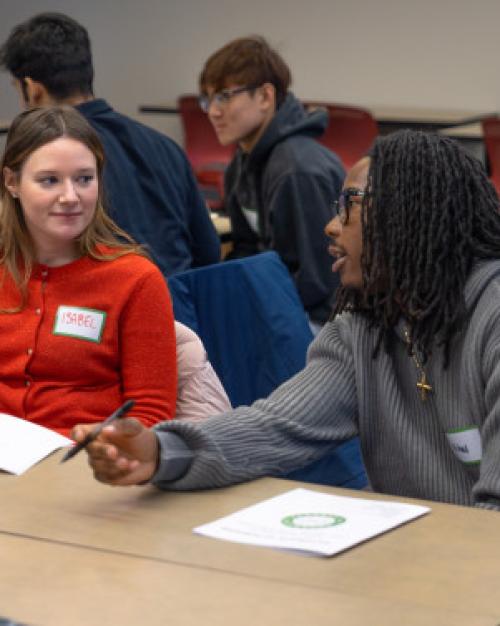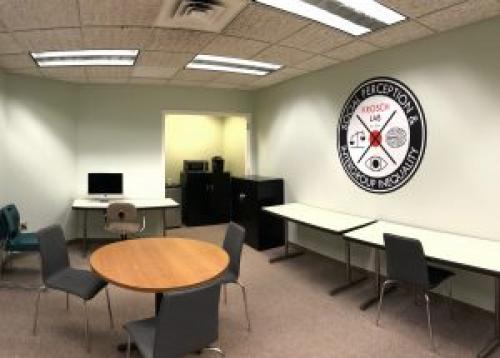Happy March! This month, ambassadors will be writing about academic research they conduct on campus. For the first post of the month, I am sharing a little bit about my experience completing a psychology honors thesis!
By Suzy Park '18, Economics and Psychology double major, Law & Society minor
One of the biggest decisions I made as a senior was to participate in the psychology honors program. As an underclassman, I had heard a number of upperclassmen talk about how writing a thesis is very stressful and can, at times, take over one’s life. However, the same people had also mentioned that being able to start and finish a research project in a year is an incredibly unique opportunity. As a student whose honors project is well underway, I can attest to both statements.
During sophomore and junior years, I had worked as a research assistant in Dr. Stephen Ceci’s Child Witness and Cognition Lab, contributing to projects examining intergroup relations in children and linguistic analyses of juror deliberations. Three semesters spent as a research assistant were undoubtedly exciting and meaningful, but I found myself wanting to gain experience in all parts of research – not just running experiments and coding data, but also helping shape the research question and interpreting results.
In the spring semester of my junior year, I took PSYCH 3820: Prejudice and Stereotyping, taught by Professor Amy Krosch. The psychology of race and ethnic relations was a topic I had become very interested in after moving from Korea – a relatively more ethnically homogenous country in which I was the racial majority – to the United States for college. Having found the class’ discussions of stereotype, prejudice, and discrimination as a function of group membership tremendously intriguing, I formally asked Professor Krosch if she would be able to advise my thesis project. She was very kind to say yes and together with her and other researchers in her lab, I finalized my research question: How does the perception of minority advancement influence White Americans’ perception of and behaviors toward Black Americans?
Currently, I am actively collecting data (participants come into the lab to take a computer-based survey) and a draft of the thesis will be written by early April. In May, I will defend and officially submit my thesis, as well as presenting the project and its outcomes to the public at a poster session. And during graduation weekend, I will find out whether I have earned latin honors.
Having been an honors thesis student for a few months, I can definitely agree with the upperclassmen who said that completing a thesis is very stressful. As exciting as designing, conducting, and analyzing one’s own study sounds, there are many – big and small – hurdles to overcome. Sometimes, research can be a daily grind, and things may not always work out the way you would like them to. However, I am more than glad that I have chosen to partake in the honors program because I get to work face-to-face with Professor Krosch, PhD students, and other researchers, each of whom bring a unique perspective on a topic of common interest. In psychology classes over the years, I had read and learned about dozens of studies, but often felt that these experiments were not immediately personally relevant. Being able to choose and work on a research question that I am incredibly passionate about, however, provided me the opportunity to build on what has already been studied in the field and make a tangible impact on issues that matter.
There is still a long way to go until I can print and submit my thesis to the psychology department, but I am extremely excited for all the adventures that await – interpreting the study results, making sense of it in the context of existing literature, and presenting it to people who care about the issue. I am also deeply grateful to the College of Arts and Sciences and to Cornell for providing me – a humble undergrad – this valuable opportunity to work alongside world-class researchers.




